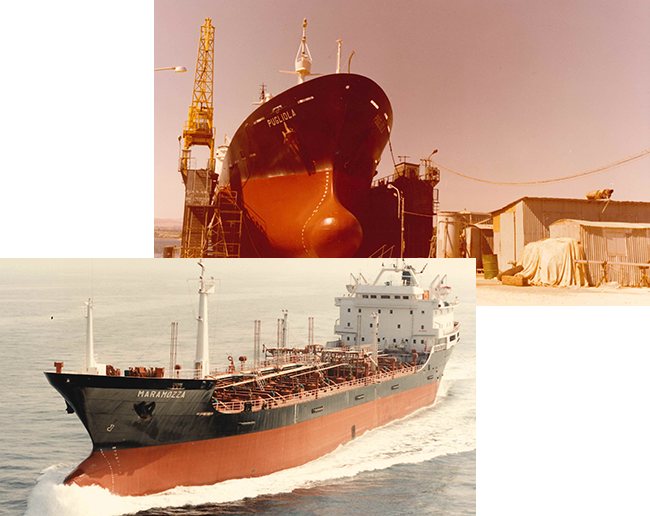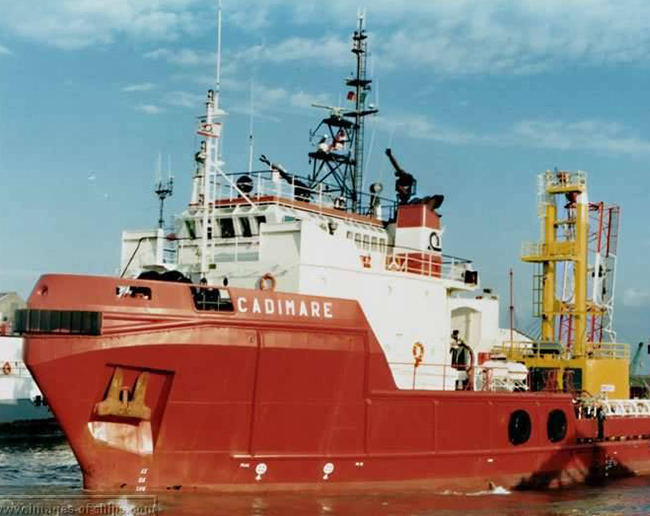
About Us
Carbofin S.p.A., parent company and holding of the Group, was established as a shipping company in the late fifties and has owned several different types of ships (bulk carriers, oil tankers, product tankers, chemicals, gas carriers, supply vessels etc.) through its different operating companies.
Over the years, the Group has progressively specialized in the gas sector, and today it owns and manages a fleet of LPG tankers, operating mainly in Central America, Brazil and the United States.
The Company, with a long tradition in shipowning and a particularly service-oriented management, has now all the synergies and skills necessary to meet the requirements of international partners. Carbofin directly manages and controls every aspect of the shipping business, from the technical management of the ship, to the crews and the financial, commercial and operational management.
Timeline
-
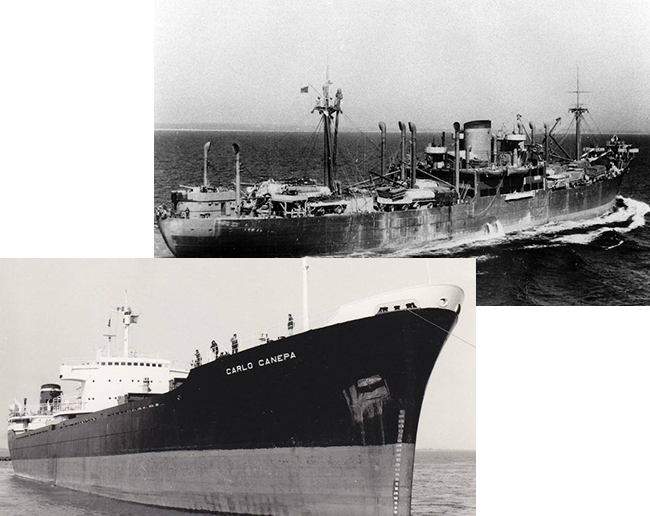
1910 – 1955
The shipping business, founded by Senator Giovanni Battista Bibolini in 1910, was split in 1954 between four families: Telesio, Lolli Ghetti, Bibolini and Cao di San Marco.
Initially, the Telesio and Lolli Ghetti families jointly operated a fleet composed of three tankers and four bulk carriers. Then, three new tankers with a gross capacity of 18,000 tons were ordered in a joint venture with the VAN OMMEREN Group and later three more bulk carriers with a deadweight of 25,000, 35,000 and 45,000 tons respectively. -
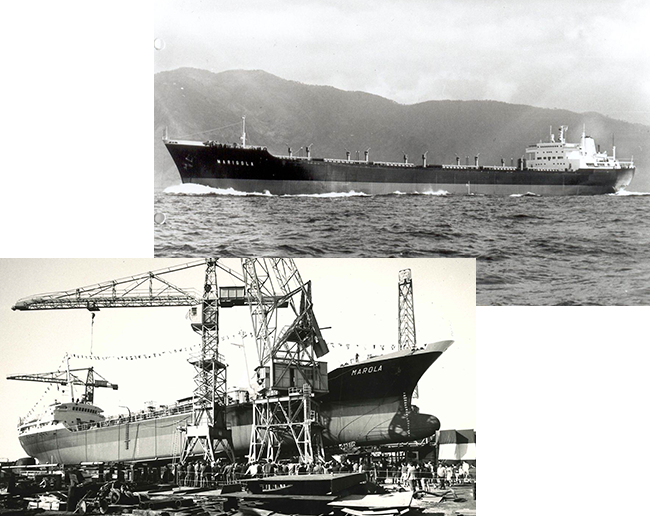
1965
Splitting up of the Telesio-Filippi and Lolli Ghetti families.
The Telesio-Filippi family controls a fleet of six bulk carriers and a tanker.
-
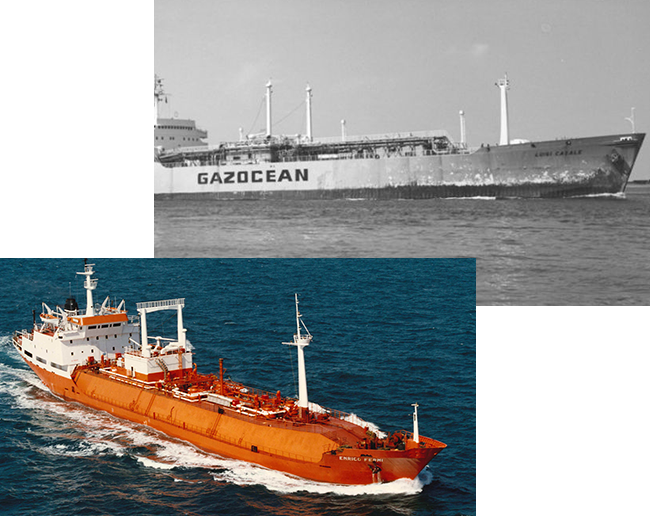
1968
Entry into the chemical sector with the construction of two ships with a deadweight capacity of 3,000 DWT (MARAMOZZA and MAROLA), both equipped with central stainless-steel tanks.
At the same time, the collaboration with GAZ OCEAN began, leading to the creation of a 50/50 joint venture and the development of an important fleet of gas carriers, reaching an outstanding rank in the European area of the LPG players.
During the following decade the ships TORRICELLI (1.500), VENTURI (2.500), AVOGADRO (5.000), CARDANO (5.500), CASALE (15.000) and EUCLIDE (4.500) are acquired.
Moreover, during the seventies the Group builds the vessels GALVANI (4.000), ENRICO FERMI (7.500), LUIGI LAGRANGE (31.000) and, in 1982, ALESSANDRO VOLTA (8.000), all in Italian shipyards.
-
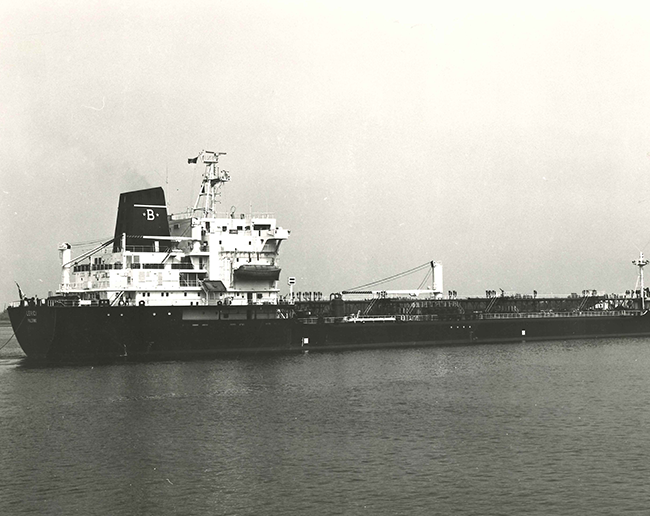
1983
The product carrier LERICI, 24.500 DWT, is built (a twin tanker to AGIP NAPOLI and AGIP PALERMO) which will then be sold in 1995.
-
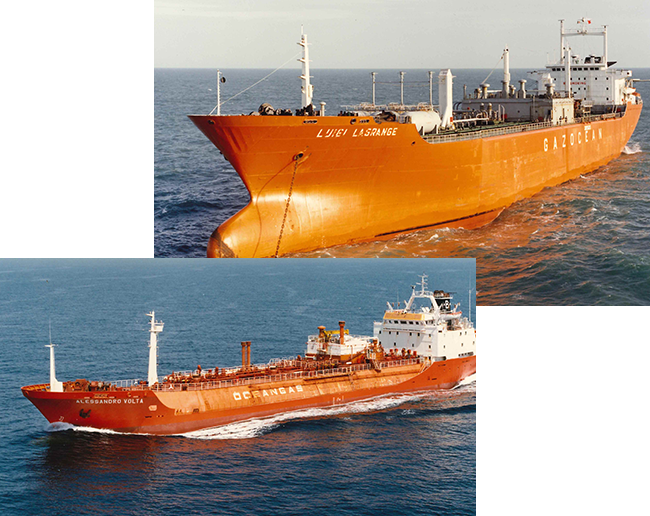
1984
Carbofin leaves the bulk sector and reinforces the gas sector by acquiring the residual 50% share of the joint venture with GAZ OCEAN and all the related vessels.
-
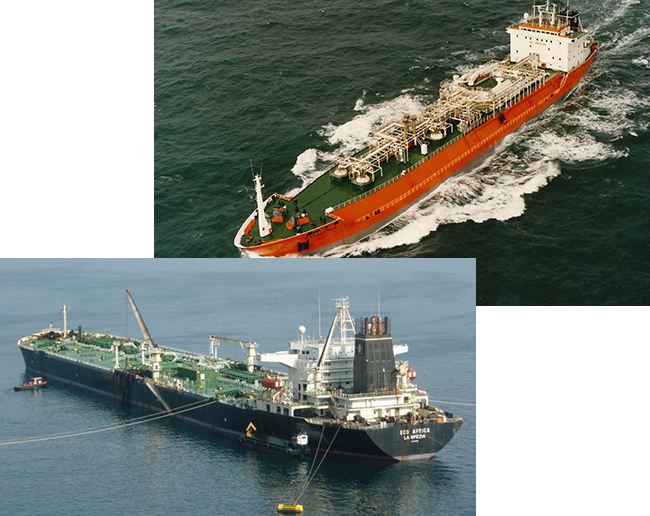
1992 – 2003
The gas sector is further developed, through the construction of two new 16,500 cubic meter semi-refrigerated ships, named MARALUNGA and FEZZANO. Collaboration begins with the NORSK HYDRO group (later Yara International), which gradually grows into the joint venture Carbonor S.p.A.
Meanwhile, four new LPG transport ships are being built: in 1996 the SOLARO, a 37,000 cubic meter unit (fully ref.); three years later PERTUSOLA and MARIGOLA, semi-refrigerated units of 18,000 cubic meters each, at the Fincantieri shipyards in Genoa; finally, the MAROLA, a Solaro-twin unit with 37,000 cubic meters capacity, is delivered to the Ancona Fincantieri shipyards in November 2003.
-
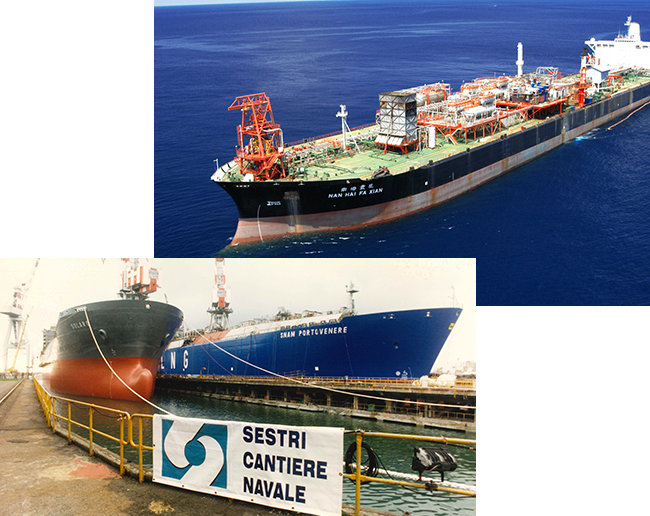
2003
Carboflotta acquires the Tankers Division of the ENI Group, including its vessels, Milan offices and Personnel. The acquisition leads to the establishment of a new company, called Carbofin Energia Trasporti S.p.A. (CET), with headquarters in San Donato Milanese.
Carbofin Energia Trasporti S.p.A. manages a fleet of its own tankers (ECO EUROPA and ECO AFRICA (150,000 dwt), SAN TERENZO and MARAMOZZA (20,000 dwt) and manages, on behalf of LNG Shipping, four methane tankers (LNG ELBA and LNG PALMARIA, 40,000 cbm, and LNG LERICI and LNG PORTOVENERE, 65,000 cbm) with a long-term contract. LNG Shipping is a 100% subsidiary of the ENI Group.
In addition, the Group manages a 254,000 DWT FPSO (Floating Production Storage and Offloading) in the south of the China Sea, called NAN HAI FA XIAN, on behalf of the CACT Operating Group.
-
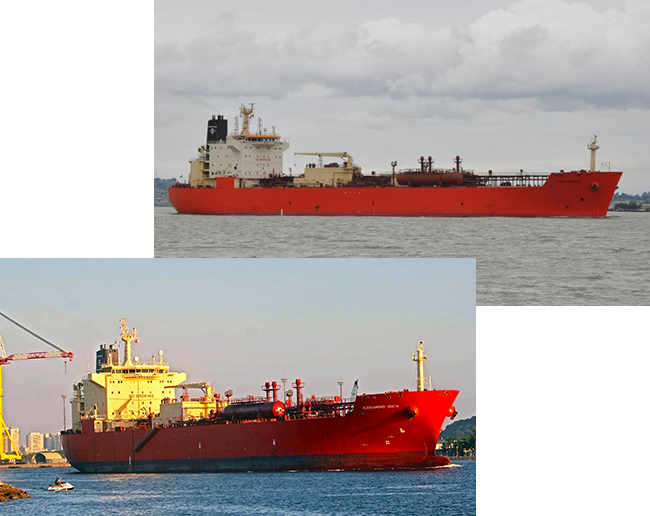
2010
The gas sector is further developed.
Carbonor S.p.A., a subsidiary of Carbofin, acquires the two 38,500 cbm (fully refrigerated) gas tankers “Maersk Jewel” and “Maersk Jade” from AP Moller-Maersk, renamed LUIGI LAGRANGE and ALESSANDRO VOLTA, respectively time-chartered to Maersk (sub-chartered and after directly employed by Koch Industries) and Petrobras.
-
2012
The Company continues to carry out audits on safety, quality and the environment, to ensure that the ships meet the increasingly stringent regulatory requirements of the sector.
The Group signs a partnership agreement with the maritime training company LITAV S.r.l. (Advanced Maritime Training Center, based in La Spezia – Italy), which offers a complete range of tailor-made training courses for crews for various types of ships (including LPG and LNG tankers), thus improving the safety, quality and environmental standards.
The ENI tanker management contract ends.
-
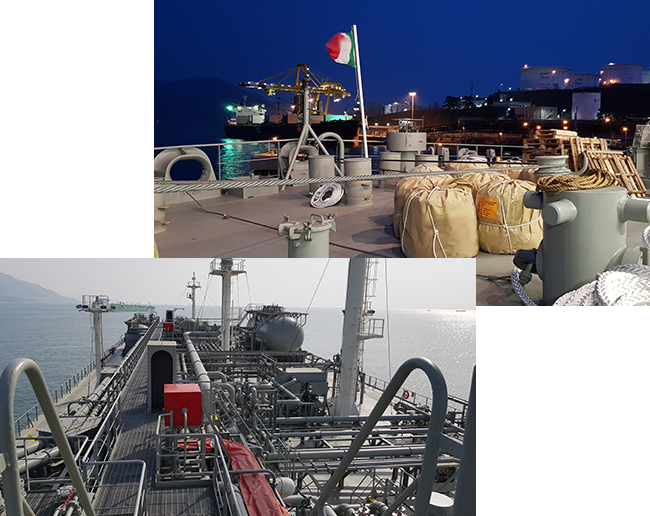
2014
Carbofin acquires full control (100%) of LITAV Maritime Training Center.
-

2015
Carbonor is merged by incorporation into Carbofin and the group structure is simplified.
-
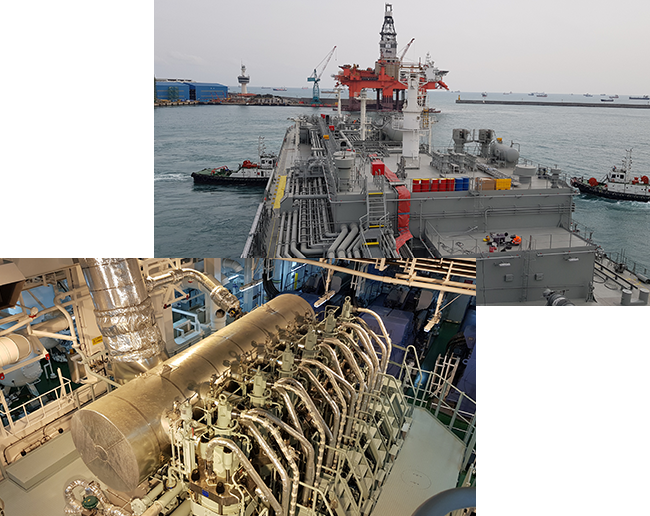
2017 – 2018
The Group acquires a newbuilding in resale, to be delivered in February 2018 at the Hyundai Heavy Industries (South Korea) shipyard. The 38,000 cbm – fully refrigerated LPG tanker is renamed ENRICO FERMI and time-chartered to Geogas SA.
LITAV S.r.l. is acquired by a third party.
-
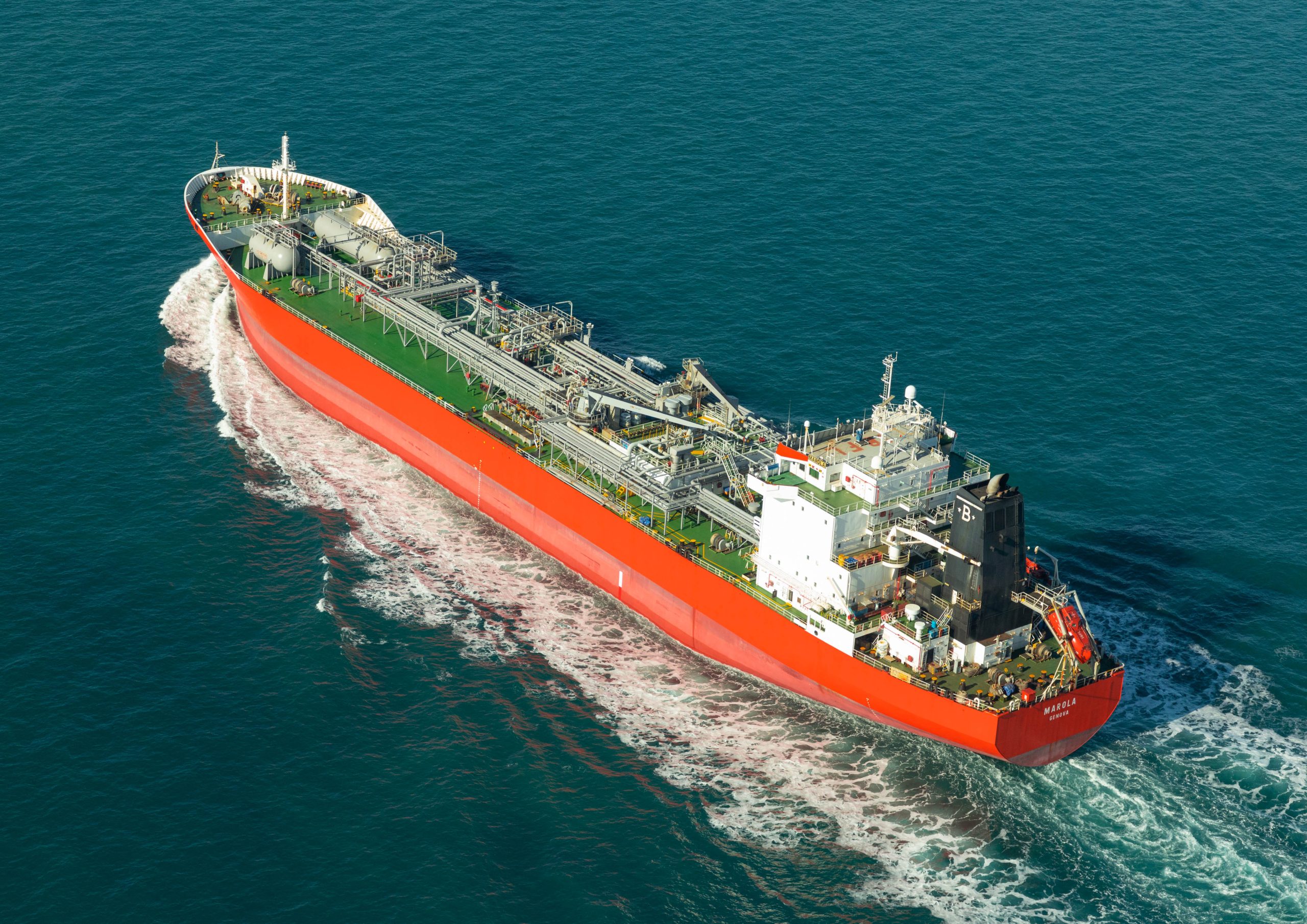
2020
Carbofin continues its fleet renewal effort to replace older ships with new units with low environmental impact and high efficiency.
The Marola is sold to a new owner.
The cooperation with Geogas Group is strengthened, with the project of a 40.000 cbm LPG dual fuel new building, capable of using part of the LPG cargo carried as fuel for propulsion and which sees Carbofin involved in the role of long time period charterer. The new building delivery is expected by the end of 2023.
-

2022
The fleet renewal project continues with the sale of Marigola.
-
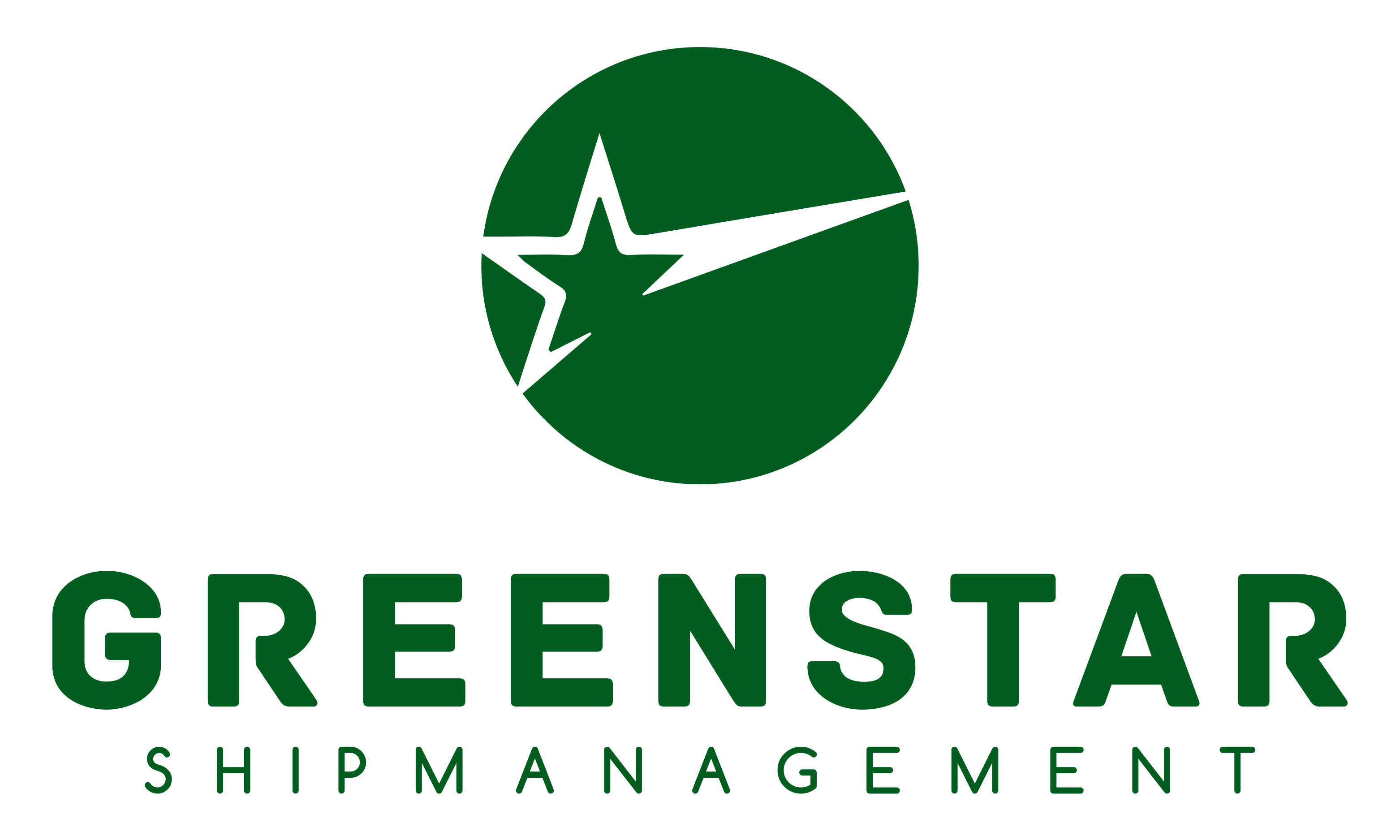
2023 – 2024
Greenstar Shipmanagement S.r.l., a new company of the group dedicated to the management of LPG vessels for third parties, is founded.
Historical archive
Sail back in the past with the historical archive of Group’s ships.
